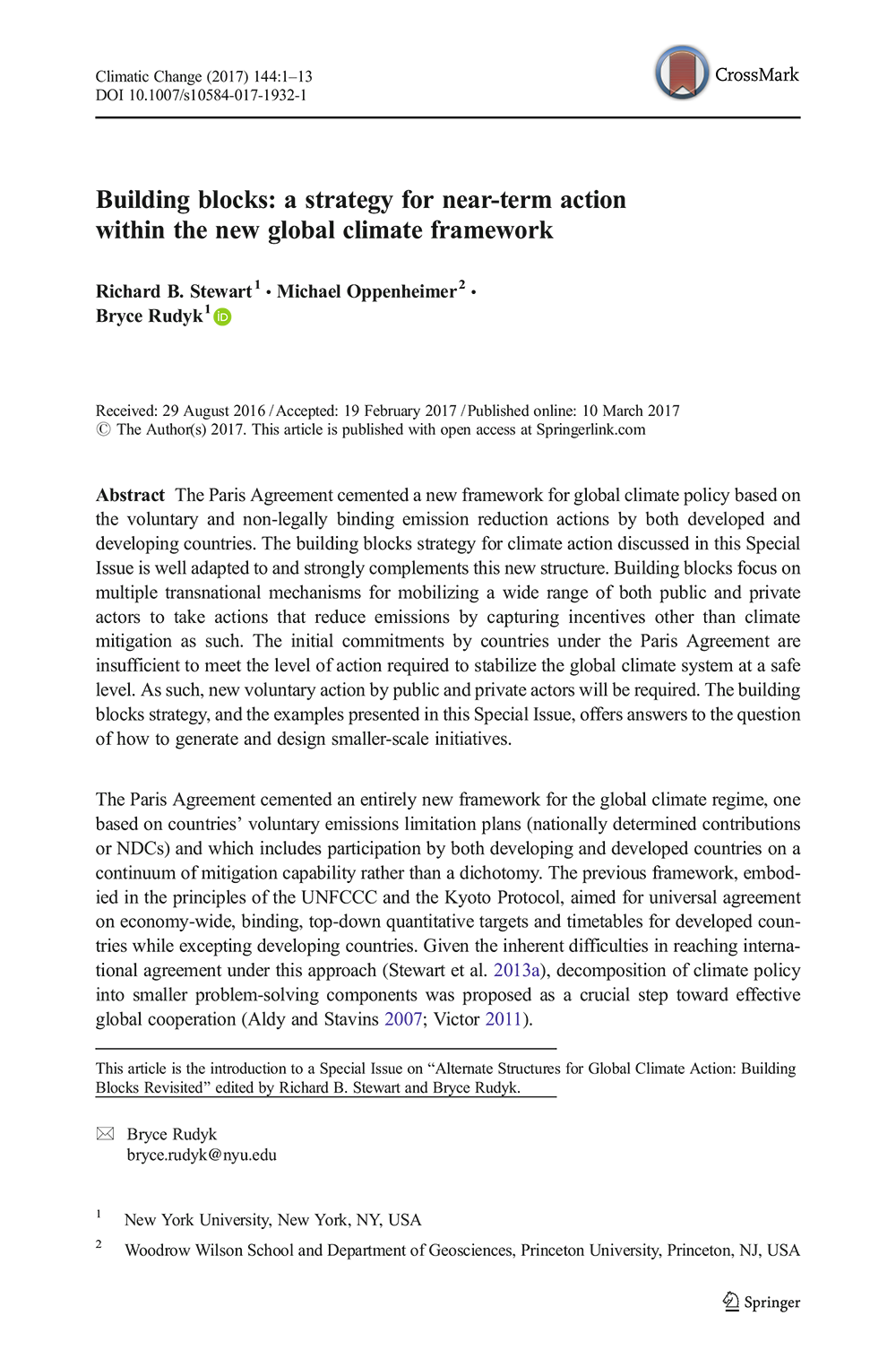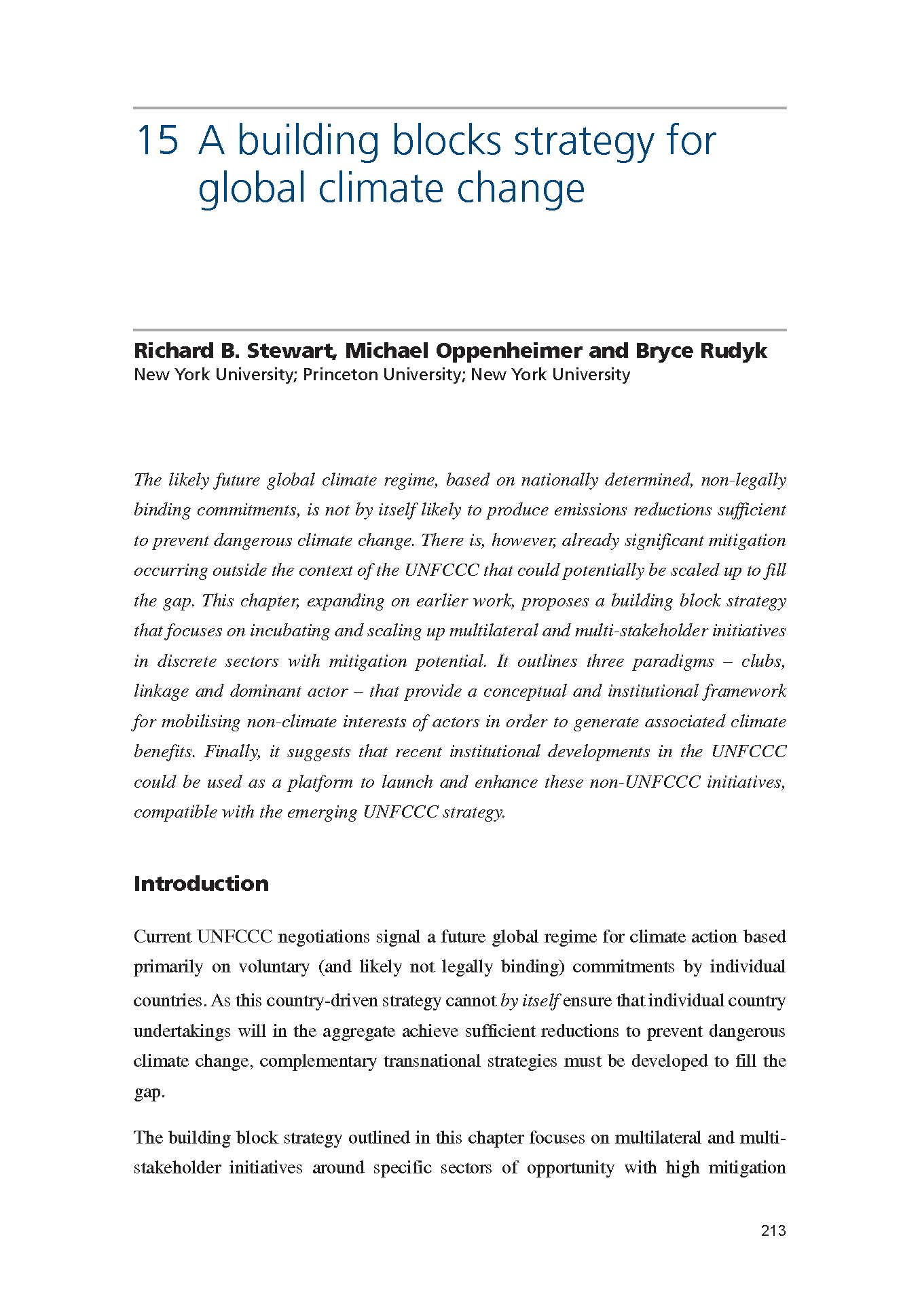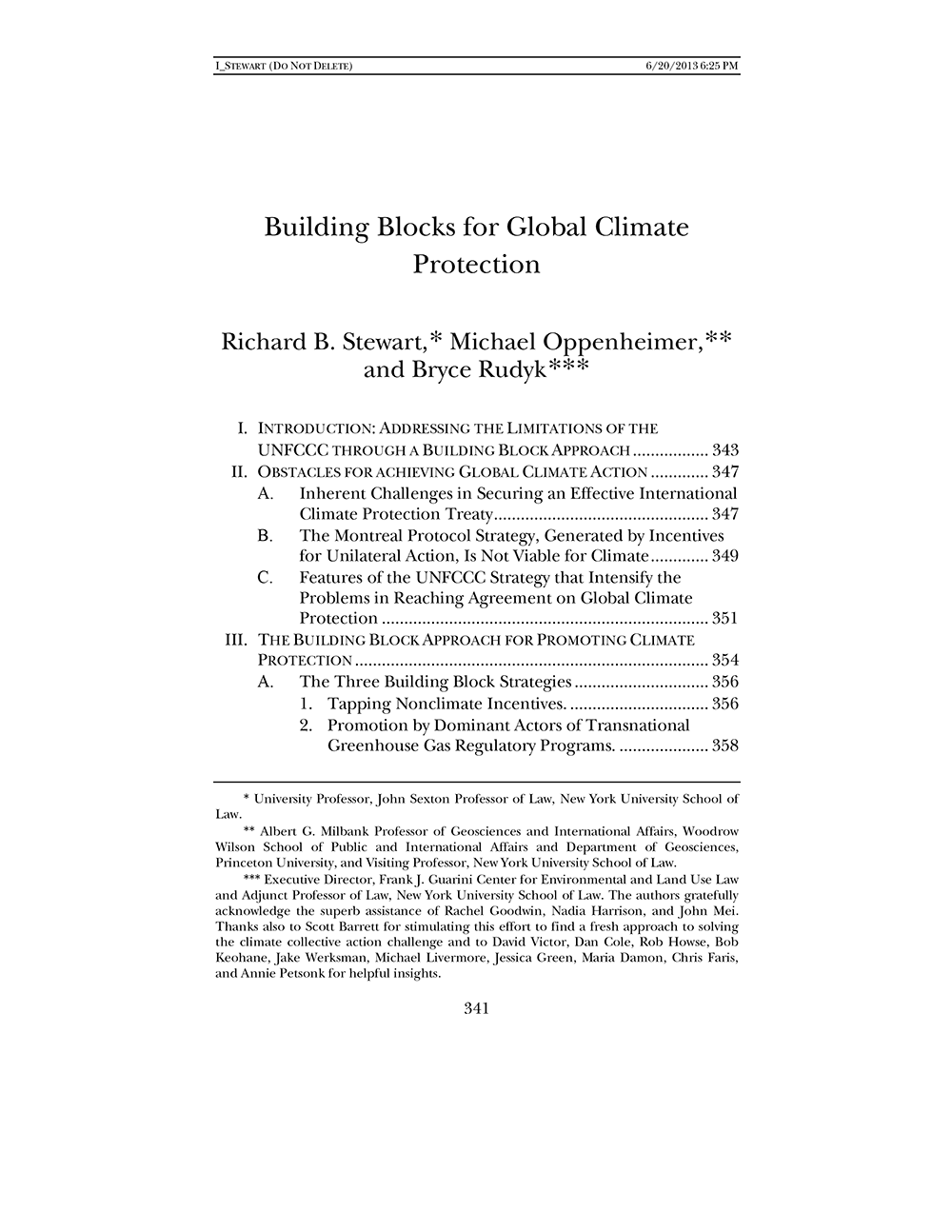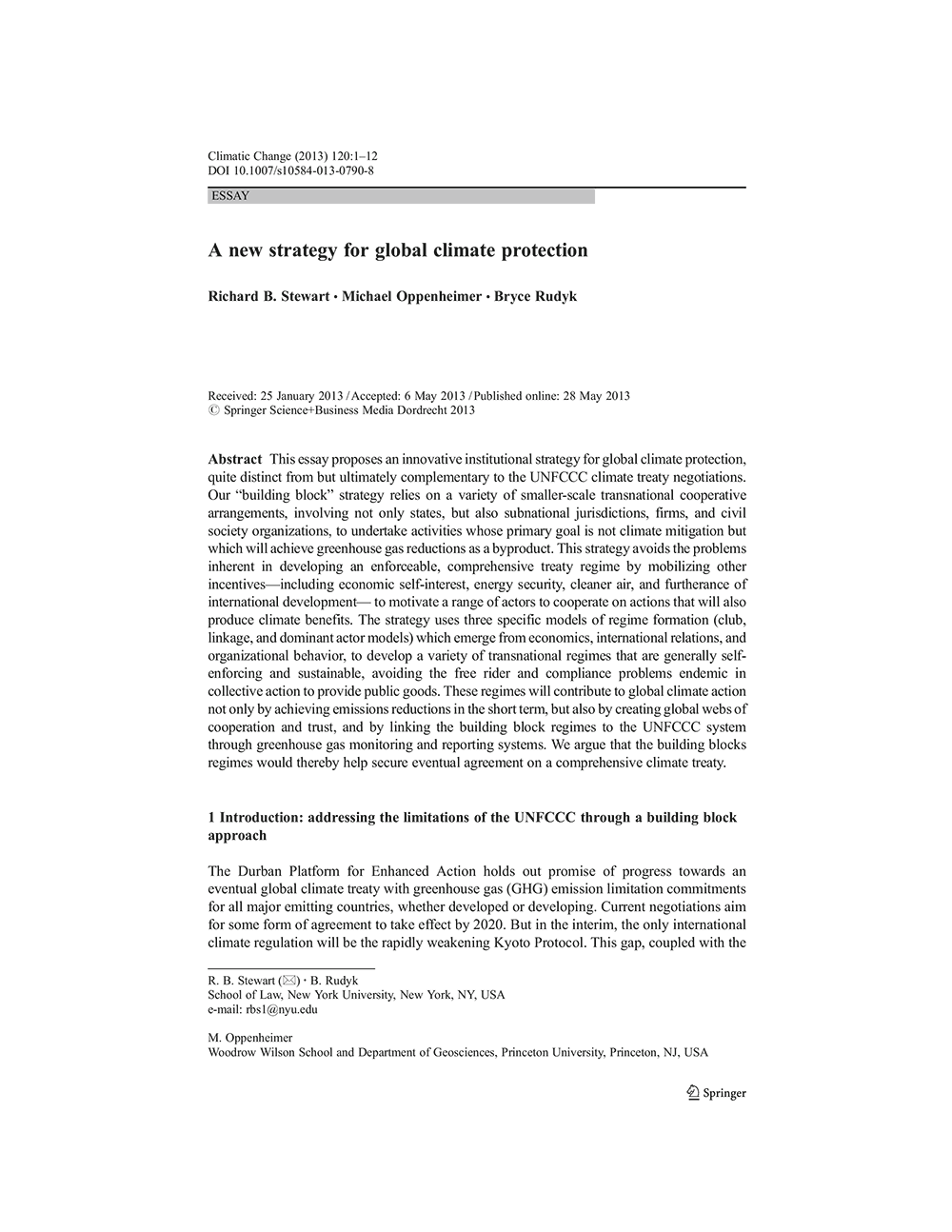issues
Issues /
Climate Change
Building Blocks for Global Climate Action
As a result of failures over many years to reach an encompassing international agreement to limit greenhouse gas emissions, there is increasing recognition of serious problems in basic design features of the sole global climate change architecture, the United Nations Framework Convention on Climate Change (UNFCCC). This recognition has provoked calls over the past few years about bottom up strategies for climate. Yet there has been little serious and sustained work on the necessary characteristics of bottom up regimes that will avoid the structural failings of the UNFCCC.
This project aims to contribute to the work of building alternative, more diverse, less centralized global climate architecture. It considers three strategies for structuring bottom up regimes, which we call a “building block approach.” These strategies aim to build transnational regulatory regimes, involving a limited number of public and/or private actors who undertake activities, often for reasons other than achieving greenhouse gas reductions, that achieve significant greenhouse gas reductions as a co-benefit. These strategies aim to complement the UNFCCC rather than serve as a substitute.
International Maritime Emissions
A focal point of analysis for the building block approach is maritime transportation. Greenhouse gas emissions from international maritime transportation remain unregulated, and progress towards the regulation of these emissions at the international level has been limited. As a result, there is a need to explore regional, bilateral, and even private strategies to move forward. As part of our research in this area, the Guarini Center is a founding member of the Transatlantic Maritime Emissions Research Network, which is convened by the University of Copenhagen Faculty of Law.



